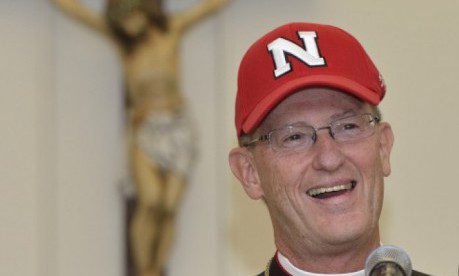Last week, a young friend of mine attempted to defend the truth about marriage among a group of peers at a secular university. She presented a meaningful argument about families, social stability, and gender complementarity. None of her classmates refuted her arguments.
Instead, they accused her of being a bigot and a homophobe, called her intolerant, and changed the topic to something less intellectually taxing.
My friend’s experience is practically a cliché. Americans who offer traditional viewpoints on moral issues in the public square have become accustomed to calumny. They know that reasoned arguments will rarely receive reasoned refutation.
In California, Archbishop Salvatore Cordileone has become the victim of a well-funded smear campaign because he expects that Catholic teachers shouldn’t publicly undermine Catholic beliefs.
Last month, a philosophy professor was suspended from a Catholic university for criticizing heterodox instruction. Even non-believers suffer this fate. Fashion house Dolce and Gabbana is being boycotted because its owners believe that children deserve mothers and fathers.
In the cultural conversation about moral issues, reasoned arguments seem increasingly drowned out by personal attacks. And twenty years ago today, Pope St. John Paul II predicted this would happen.
Today marks the twentieth anniversary of John Paul’s Evangelium Vitae, his encyclical on the mission of the Gospel of Life. Evangelium Vitae is probably the most comprehensive and compelling encyclical on moral issues I have ever read.
It addresses the evils of abortion, contraception, and euthanasia. But the encyclical is fundamentally concerned with the relationships between love, truth, freedom, and justice. Twenty years after its promulgation, we must return to Evangelium Vitae. Its message becomes more relevant each year. Continue reading
- Bishop James Conley in Public Discourse
James Conley is the Catholic Bishop of the Diocese of Lincoln, Nebraska.
Additional readingNews category: Analysis and Comment.




